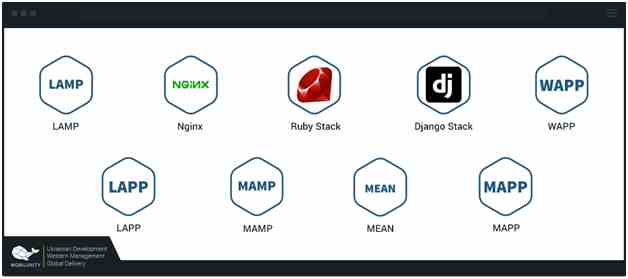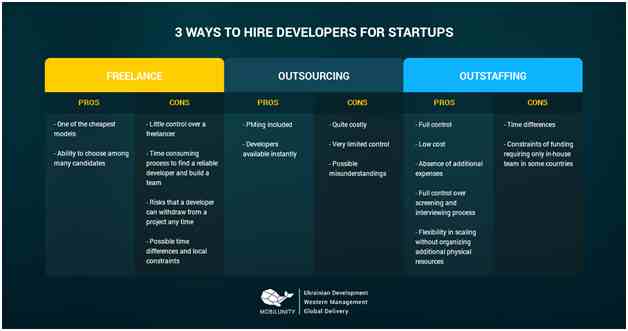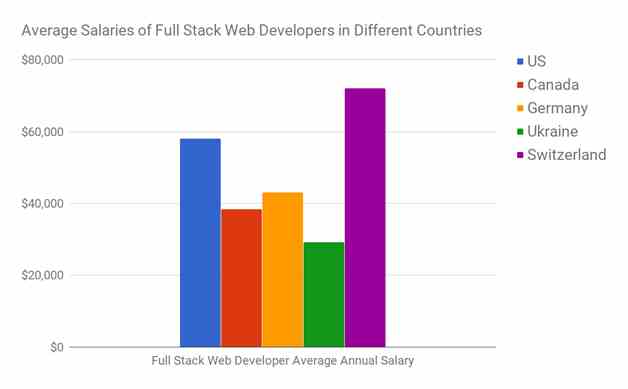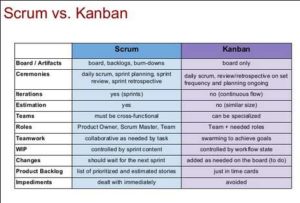What Is a Full Stack Developer and Should I Hire One
As we delve deeper into the digital age, the internet has become more and more ingrained in our daily lives. Web and mobile applications on our various machines and devices have become convenient instruments that enable us to smoothly go about our daily lives and quickly connect with the rest of the world. With this, the application development industry has also soared in both relevance and popularity, as it empowers the proliferation of technology as a welcome tool to makes our daily lives more comfortable. Web, mobile, and software application development have all risen to the surface as promising careers that not only are in high demand, but also contribute greatly towards improving the collective human experience.
Application development is a wildly multifaceted discipline that entails a variety of skills and a knowledge of a wide range of technologies. Typically, it’s divided into front-end and back-end layers, each with its own set of components. front-end application development is concerned with interacting and interfacing with the user, effectively presenting information to them and providing a user-friendly graphical interface with which they can interact with the system and perform a variety of actions. back-end application development is concerned with the assembly of all the logic and calculations that are necessary for the system to work properly, as well as the retrieval and storage of information to and from database systems.
Some developers specialize in front-end development while others specialize in back-end development, but there are those who specialize in both layers, capable of developing a full application across all layers. Such developers are called full stack developers, and they are in high demand because they know a great deal about all aspects of development. But what does full stack developer mean in actual practice? In this article, we take a closer at full stack web development, check out what’s a full stack engineer, explore how full stack developers offer great value to businesses, and examine the typical full stack web developer salary to give us a clearer picture of the landscape of full stack development.
Full Stack Developer Technologies
There are currently a huge amount of programming languages being used in the software development sphere, and these languages are optimized for different layers of development. For front-end development, for example, JavaScript is the main programming language used in conjunction with HTML and CSS. There have since surfaced countless JavaScript frameworks that aim to make front-end development swifter and smoother.
On the other hand, in the back-end development department, several programming languages may be used. Among the most popular back-end programming languages are Java, C, C++, C#, and Python. For these languages, several frameworks have also been developed for faster development. In addition, back-end development entails connecting to database systems. Some of the most popular database systems are MySQL, SQL Server, and MongoDB. An additional plus will be knowledge of database management tools, for example, MySQL IDE, and the like.
A full stack developer must be knowledgeable in these different languages and technologies. In addition, he should also be knowledgeable in the way these tools integrate and connect with each other in order to traverse the different development layers. He should be aware of which technologies and languages go well with each other and which ones should not be used together to avoid conflicts and issues. To assess a full stack developer’s knowledge in these different languages and technologies, companies often rely on conducting SQL test for developers as part of their hiring process to make sure that the candidate has a strong understanding of SQL and its role in full stack development.
There are a number of standard full stack developer languages and technologies, so-called technology stacks, that are typically used for full stack development. Here are some of the most popular ones.

LAMP
The LAMP stack is a free, open-source web application stack whose name is an acronym of the technologies belonging to the stack: Linux for the operating system, Apache as the web server, MySQL as the database management system, and PHP as the main programming language. PHP may also be replaced by Perl or Python. Aside from being purely open-source, the LAMP stack has become a highly popular technology stack because it provides a solid foundation for high-performance web apps. Several variations of the LAMP stack have emerged, including the WAMP stack (where Linux is replaced by Windows) and the MAMP stack (where Linux is replaced by MacOS)
LAPP
The LAPP stack is another free and open-source web app development stack that uses the Linux operating system, Apache web server, PostgreSQL database management system, and the PHP programming language. It’s commonly used for creating highly dynamic web applications. Variations include WAPP (with Linux replaced by Windows) and MAPP (with Linux replaced by MacOS).
MEAN
The MEAN stack is another open-source, free web development stack that uses the MongoDB database management system, Express.js back-end framework, AngularJS front-end framework, and Node.js back-end language. What’s special about the MEAN stack is that it uses components that are all based in JavaScript, so MEAN stack development makes use of JavaScript across all layers of development. This makes full stack development much easier as it requires foundational knowledge of only one language, and only requires learning various frameworks for JavaScript.
Ruby Stack
The Ruby stack is another software development stack that uses components based mainly on the Ruby programming language. This includes the Ruby on Rails framework and the Ruby Virtual Machine, along with the Nginx web server and MySQL database management system. The technology stack is targeted towards quick development, as its components and their dependencies are all included out of the box.
Django Stack
The Django stack is a Python-based technology stack that uses Python as its base language, the Django web development framework, Apache web server, and MySQL database management system. Similar to the Ruby stack, its components and dependencies all come out of the box.
Reasons to Hire Full Stack Developer
Full stack development is a booming field. According to the 2018 Stack Overflow Developer Survey, 48.2% of all developers identify as full stack developers. This is a clear reflection of the continued rise of the demand for full stack developers, a significant increase compared to just 28% a mere two years ago. Let’s take a look at some of the reasons why full stack developers are in such high demand.
Development Versatility
When it comes to the delegation of tasks, a full stack developer may be given any task concerning any development layer. You won’t need to worry about giving a full stack developer a task that he/she cannot do, because being a full stack developer naturally means he/she can perform all types of development tasks.
Supervision Capability
A full stack developer has knowledge over multiple domains in the software development world, so he/she is capable of supervising an entire team. A supervisor needs to have both technical and leadership skills, and a full stack developer is certain to already have the required set of technical skills over the many different disciplines of web development.
Debugging and Maintenance Suitability
In order to be good at debugging and maintaining codes, a developer needs to have some experience with programming a wide variety of development tasks. A full stack developer is most suited to such tasks as they have had experience in both back-end and front-end development and can understand and work with all types of codes.
Cost Efficiency
Traditionally, businesses need to hire separate developers for back-end and front-end development, but full stack developers eliminate the need for this separation. Instead, you can simply hire a full stack developer to do the task of two separate developers, thereby giving you cost savings with your web application project.
Quicker Development Times
When you hire separate front-end and back-end developers, these developers will always have to allocate significant time for integration every now and then. Once corresponding front-end and back-end tasks are completed, the assigned developers will then need to coordinate with each other to connect their modules, synchronize their input and output parameters, and test the transition from one layer to the next. This takes a lot of time, whereas a full stack developer can do this very quickly because he/she is forced to take such things into account when developing each module.
Fewer Integration Risks
Integration of software modules always come with some degree of risk. Even when separate development estimates have been allocated for module integration, there can always be unexpected sources of error that can prop up, some of which are caused by miscommunication or lack of coordination between the involved developers. Such risks are substantially mitigated when full stack developers are utilized, as these developers do not have to work on a per-module mindset and instead can develop an end-to-end piece of code that requires minimal integration.
Full Stack Web Developer Skills
Here are some of the full stack developer skills that a competent full stack programmer must have and which companies often look for to ensure that you’ll be fully capable of accomplishing the task at hand.
Proficiency with HTML, CSS, JavaScript
Regardless of the technology stack you’ll be using, if you’re a full stack developer, you’ll be working with the three fundamental front-end technologies: HTML, CSS, and JavaScript. While there are a lot of programming languages that can be used for the back-end department, for the front-end layer, there’s only these three, and all the rest are frameworks and libraries that are all based on these technologies. Therefore, in order to be an excellent developer, you have to be proficient in working with HTML, CSS and JavaScript and you should be well aware of the industry-standard best practices for front-end development.
Mastery of Database Queries
While there are several relational database management systems available for use, the syntax that they use are highly similar, and most of them differ substantially only in terms of their graphical user interface (GUI). As such, if you’re hoping to be a marketable full stack developer, you should know your way around database queries for creating schemas and tables, performing basic and advanced database scripts, and even creating stored procedures for highly complex functionalities. In addition, you should also be aware of non-relational databases, such as NoSQL database systems.
Full Knowledge of the SDLC
Full stack developers, having a wider domain knowledge than front-end or back-end developers, are naturally given greater responsibilities. As such, if you’re aspiring to be a legitimate full stack developer, you should have a thorough understanding of the Software Development Life Cycle (SDLC), which describes the different stages of software development, including planning, designing, testing, and maintenance. Knowledge of the bigger picture of software development will provide you with a better context of the full stack developer tasks that you’re given so that you’ll be able to develop in accordance with the guidelines set for the whole software development practice.
Full Stack Developer Resume
Here’s a sample full stack developer resume to give you a better picture of the usual experience and skill set of actual full stack developers.
Senior Full Stack Developer
Experience
- Development of a resource management web application that enables managers to track and manage employees
- Debugging of a mobile application for tracking personal expenses
- Development of a web application for time and attendance tracking and leave management
- Development of a web application for claims management of an insurance company
Skills
- HTML, CSS, JavaScript, JQuery, AngularJS, Bootstrap, SASS, Java, Spring, Spring MVC, Spring Boot, Struts, MyBatis, Thymeleaf, Hibernate, MySQL, SQL Server, MongoDB
How to Find Full Stack Developer

There are a variety of ways through which you can find full stack developers that you can hire. Here are three of the most common ways to do so.
Freelancers
One of the most popular options would be to hire freelance full stack developers. This may be done via freelance portals, such as Upwork, Freelancer, and Toptal. This method is typically cheap, as there is aggressive competition among the freelancers on such portals. Moreover, since there are a lot of freelancers registered on such portals, the number of options from which you can choose is huge. However, this option also comes with some serious risks. First, it’s difficult to ensure the skills of the freelancer you’re going to hire, as you’ll likely be relying on what’s written on their profiles to assess their capabilities. Depending on the location of the freelancer you’ll be hiring, you might also face difficulties with time zone differences and language barriers. Moreover, there’s always the risk of your freelancers withdrawing from your project at any time for a variety of reasons, so accountability is a huge risk.
Project-Based Outsourcing
You may also go the route of project-based outsourcing, in which you delegate the completion of the entire project to a third party company. With this option, you won’t have to worry about the management of your project, so this will take a heavy load off your shoulders. However, this option can be quite costly, because it involves additional expenses for services such as project management and business analysis. Moreover, it gives you limited control over your project and your developers. In addition, this option often requires you to have your full requirements ready before the start of the project, and any changes to your project can cause a significant delay in your project and a corresponding increase in cost. What’s more, misunderstandings during the requirements elicitation phase can have a huge impact on your project, as it can cause further delays and increase in cost especially when such misunderstandings rise to the surface late into the project.
Dedicated Developers
One other option you have would be to hire dedicated developers from a third party offshoring company. These developers remain within their company’s premises, but they work full-time for you and report directly to you. This option gives you full control over your hired developers, and it even gives you some involvement in the developer selection process. It’s also relatively affordable, as there’s no added cost for project management and business analysis. Moreover, it’s highly scalable, as you can easily add or remove developers whenever your project requirements change. Note, however, that challenges with language barriers and time zone differences also apply to this route, so it is of critical importance to carefully select the location from which you’ll be hiring dedicated developers to minimize this inconvenience.
Full Stack Web Developer Salary
When hiring a full stack developer, one of the most important concerns would be the price. The usual senior full stack developer salary in most countries is very steep, so it is worth considering hiring from other locations. For this purpose, let’s compare the typical full stack web developer salaries in different countries. For this comparison, we use PayScale as our data source, and we compare the average gross annual salaries of web developers in different countries. According to PayScale, the salaries are as follows:
- US – $58,000
- Canada – CAD $49,758 ($38,288)
- Germany – €36,494 ($42,983)
- Ukraine – $29,163
- Switzerland – CHF 71,053 ($72,087)

Comparison of Full Stack Web Developer Average Gross Annual Salaries (Source: PayScale)
It’s easy to see from the above comparison that Ukraine offers the most affordable rates for web developers, so if you’re looking to hire a full stack development team to develop a full stack system, Ukraine should be your first option.
The Value of a Full Stack Application Developer
With the rapid advancements of technology that has led to the rampant digitization of systems in many organizations, web development is in high demand. Full stack developers, in particular, are of high value because they are capable of end-to-end development of web applications that eliminate the need for separate roles in a web development project. We’ve taken a look at what being a full stack developer entails, as well as some of the most practical ways of hiring full stack web developers. With the current trends in the digital sphere, there’s virtually no reason why businesses shouldn’t hire full stack developers for their next web app project.







